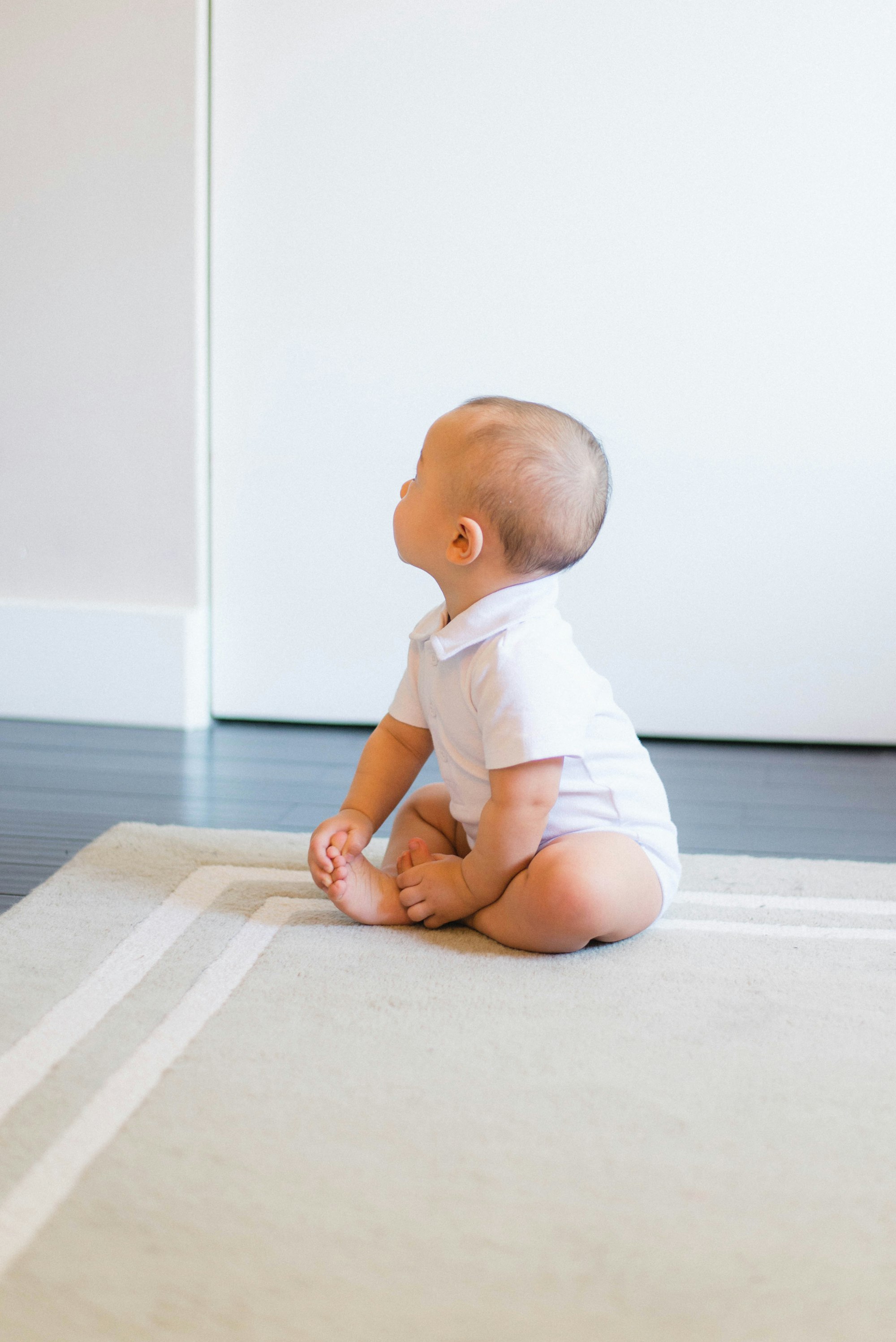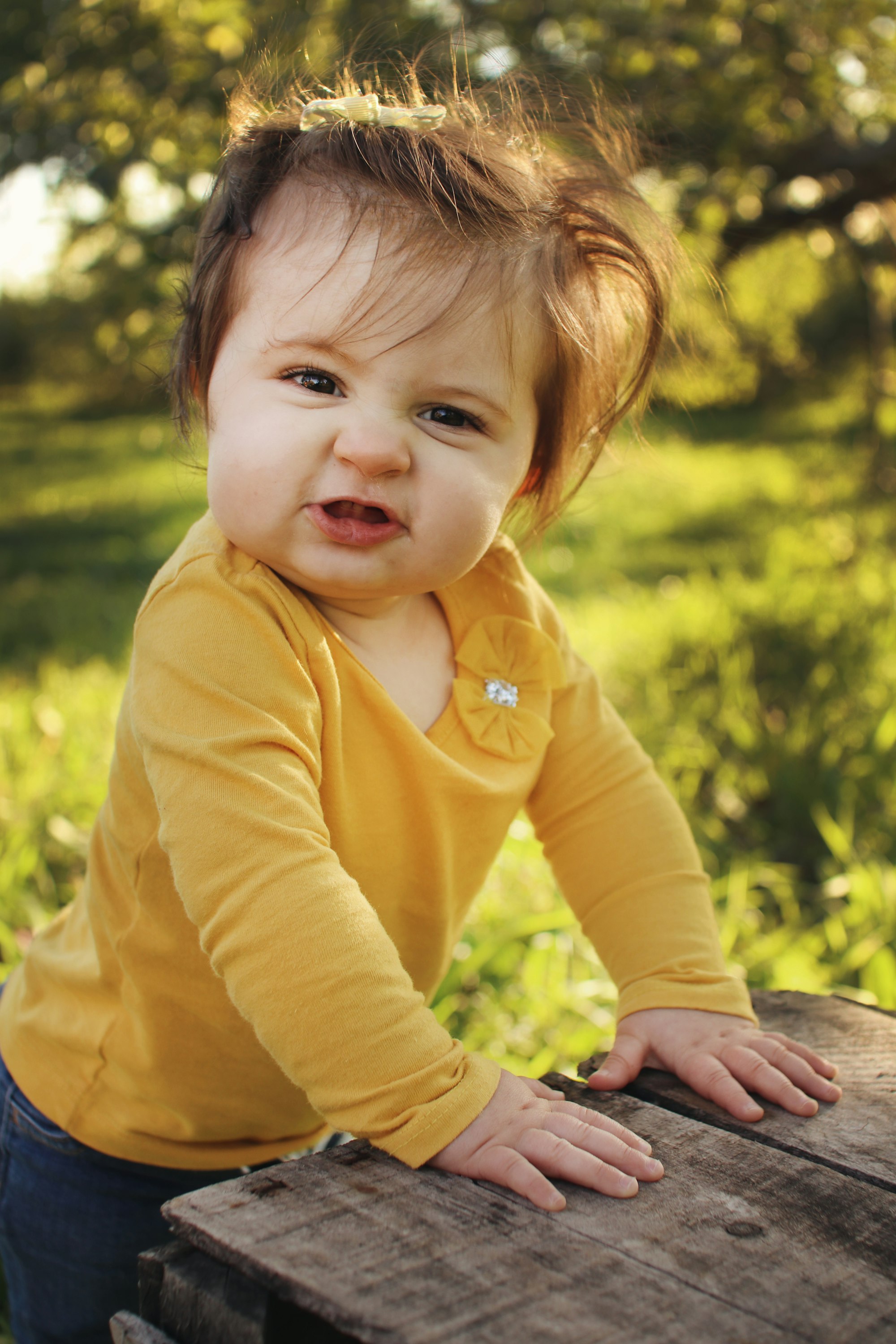How Do I Know if My Baby is Healthy?

As parents, we spend a lot of time worrying about our children from the time they are born. Today, I am reassuring you that it is perfectly normal for new moms and dads to worry if their baby's developmental milestones are on track.
What are developmental milestones?
Developmental milestones are a set of functional skills or age-specific tasks that most children can do at a certain age range. In short, they are skills such as taking the first step, smiling for the first time, and waving “bye-bye”.
Although they're called milestones, they're not necessarily set in stone. Every child develops at their own pace!
“If your baby reaches one milestone sooner, she may reach another one later, because she’s so busy perfecting the other skill,” says Dr Jennifer Shu, MD, pediatrician and co-author of Heading Home with Your Newborn.
But all it takes is a small, paranoid thought, isn't it? Why isn't my baby able to stand on his own? Why doesn't he smile when he sees us? And you find yourself tumbling down the rabbit hole of online diagnosis.

Over the past decade, LittleLives has served over 180,000 parents, and we've learnt a few things about children's development. We've put together a guide for you to gauge whether your baby is happy and developing normally.
Phase One: The first three months
The first few hours, days and weeks with your baby are equally exciting and scary. What does ceaseless crying mean? Is she hungry? Is she in need of a diaper change? Is she just fussy?
During this first stage of development, babies are adapting to living in the outside world having spent nine months comfortably inside mommy's womb.

The first three months can be seen as the "fourth trimester" for parents and baby to get to know each other. It is going to be mostly about eating, sleeping and crying. But you can also look forward to baby lifting her head, making silly sounds and giving you a real first smile.
These are some developmental milestones you may observe in your little one:
- Smiling. In the early days, it will be just to herself. But within three months or so, she’ll be smiling in response to your smiles and voices.
- Lifting her head. Raise her head and chest when on her tummy.
- Tracking moving objects with her eyes.
- Bringing hands to her mouth.
- Gripping objects in her hands.
Phase Two: Four to six months
The newborn days are over! This is where the baby would have slowly gotten used to life outside mommy's womb. You will start seeing her personality bloom. You will hear more of her giggles, squeals and babbles.
During phase two, babies are learning about the world around them. They become more alert and mobile. They’re mastering the use of their hands. Every experience — from cuddling before nap time to listening to daddy and mummy talk — will help your baby learn more about the world.

Here are some developmental milestones you may observe:
- Evolving motor functions. Rolling over from front to back or back to front. Sitting up with support and having better control of her head.
- Improved hand-eye coordination. Reaching out and grabbing objects (hair tugging may occur), and fiddling with toys and other objects with her hands.
- Baby talk. Babbling or making sounds that can sound like a real language. She might start making sounds to express joy. She might also show indications of being able to differentiate emotions from the tone of her voice.
- Clearer vision. Colours, such as shades of reds, blues and yellows, become more apparent to them. You might also observe them staring at objects or their own reflections.
This is the stage at which many working parents may choose to enrol their babies in infant care. This doesn't mean that these parents will be missing out on developmental milestones! Some infant care centres use software (like LittleLives' LittlePoop) to allow parents to keep an eye on their baby's daily growth, mealtimes, naps, medication, and other details on how their child is doing.
Phase Three: Seven to nine months
In the second half of your baby's first year, your little one becomes even more mobile. After learning that she can get somewhere by rolling over, she’ll spend the next few months figuring out how to move forwards and backwards. This is the time to start baby-proofing your home if you haven't done so.

Here's what you can expect from your baby:
- Increased mobility. Starting to crawl. This happens in many forms, from scooting (using her arms to drag her bottom) to standard crawling on her hands and knees. Some babies may even go straight from scooting to walking. Every baby is on their own unique journey!
- Increased strength. She may start sitting up without support or learn to stand up with support.
- Increased engagement. She starts responding to familiar words like her name or action words like eating and sleeping. This is why you should repeat words to your baby. She may also respond to “No” by briefly stopping and looking at you, and may start babbling "Mama" and "Dada."
Phase four: The final three months
The last development stage in a baby’s first year is quite a transition. She is no longer an infant, and she might look and act more like a toddler.

In the final three months, she’s learning:
- Feeding herself. Babies at this stage start learning to put food into their mouth. You have to be extra careful to not have inedible objects around them.
- Increased motor functions. She is a master of the pincer grip, holding small objects between her thumb and forefinger. She is also learning to move around the room on her feet while holding onto furniture.
- First words! The average is about three spoken words by the first birthday, but the range on this is enormous, so take it with a pinch of salt.
- Copying behaviour. You may observe her copying you or using objects correctly, such as pretending to talk on the phone. This is where you should be mindful of the language used around her and avoid the careless slip of the tongue of any colourful words.
When to talk to a paediatrician?
A child's development is not a race. So, time is not the best measurement of progression for your growing child. What's important is to watch for your baby moving forward in her development.
Unfortunately, there is no magic formula for when a child hits which milestone. As parents, you have to trust your instincts. If you really feel that something is not right, have a conversation with your doctor. If there is a problem, you want to be able to identify it as soon as possible.
"Early intervention is best, and you know your child better than anyone.” says Dr Jennifer Shu.

Through it, all, live in the present moment. They say that the early years will pass in the blink of an eye. So, enjoy the process of your child discovering the world for the first time!
To sum it up
A smart school management system is designed to make your life easier. It is the nervous system for schools around which other technologies are incorporated. It is, in fact, a master plan to regulate administrative operations in a consolidated, integrated, efficient and smooth way to increase the productivity of schools. It is also a value-adding tool for parents to have a look into their child's day, anywhere and anytime.
If you are an educator or school administrator still looking for a system that will work well for your school's operations, you can contact LittleLives to see how we can help!



